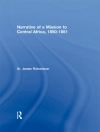Building on the success of the bestselling The SAGE Handbook of Grounded Theory (2007), this title provides a much-needed and up-to-date overview, integrating some revised and updated chapters with new ones exploring recent developments in grounded theory and research methods in general. The highly-acclaimed editors have once again brought together a team of leading academics from a wide range of disciplines, perspectives and countries. This is a method-defining resource for advanced students and researchers across the social sciences.
Part One: The Grounded Theory Method: 50 Years On
Part Two: Theories and Theorizing in Grounded Theory
Part Three: Grounded Theory in Practice
Part Four: Reflections on Using and Teaching Grounded Theory
Part Five: GTM and Qualitative Research Practice
Part Six: GT Researchers and Methods in Local and Global Worlds
สารบัญ
Senior Editor′s Introduction – Antony Bryant
Editors′ Overview – Antony Bryant & Kathy Charmaz
Part 1: The Grounded Theory Method: 50 Years On
Chapter 1: Situating Grounded Theory and SA in the History of Interpretive Qualitative Inquiry – Adele Clarke
Part 2: Theories and Theorizing in Grounded Theory
Chapter 2: The Pragmatism of Anselm L. Strauss: Linking Theory and Method – Jörg Strübing
Chapter 3: The Status of Theories and Models in Grounded Theory – Udo Kelle
Chapter 4: Grounded Theory′s Best Kept Secret: The Ability to Build Theory – Cathy Urquhart
Chapter 5: Deductive Qualitative Analysis and Grounded Theory: Sensitizing Concepts and Hypothesis-Testing – Jane F. Gilgun
Part 3: Grounded Theory in Practice
Chapter 6: From Intuition to Reflexive Construction: Research Design and Triangulation in Grounded Theory Research – Uwe Flick
Chapter 7: The Nuances of Grounded Theory Sampling and the Pivotal Role of Theoretical Sampling – Janice M. Morse & Lauren Clark
Chapter 8: Coding for Grounded Theory – Linda Liska Belgrave & Kapriskie Seide
Chapter 9: Coding and Translating: Language as a Heuristic Apparatus – Massimiliano Tarozzi
Chapter 10: Literature Review in Grounded Theory – Robert Thornberg & Ciarán Dunne
Chapter 11: Using Popular and Academic Literature as Data for Formal Grounded Theory – Vivian Martin
Chapter 12: Rendering Analysis Through Storyline – Melanie Birks & Jane Mills
Chapter 13: Abduction: The Logic of Discovery of Grounded Theory – An updated review – Jo Reichertz
Chapter 14: Grounded Theory Analysis and CAQDAS: A Happy Pairing or Remodeling GT to QDA? – Susanne Friese
Chapter 15: Keep your Data Moving – Operationalisation of Abduction with Technology – Andrea Gorra
Chapter 16: Grounded Text Mining Approach: A Synergy between Grounded Theory and Text Mining – Mitsuyuki Inaba & Hisako Kakai
Chapter 17: Visual Images and Grounded Theory Methodology – Krzysztof Konecki
Chapter 18: Grounded Theory Methods in the Context of Masculinity and Violence – Katherine Irwin
Chapter 19: Using Constructivist Grounded Theory Methodology: Studying Suffering and Healing as a Case Example – Kumar Ravi Priya
Part 4: Reflections on Using and Teaching Grounded Theory
Chapter 20: Teaching and Learning Grounded Theory Methodology: The Seminar Approach – Judith Holton
Chapter 21: Grounded Description – Barney Glaser
Part 5: GTM and Qualitative Research Practice
Chapter 22: Grounded Theory and the Politics of Interpretation, Redux – Norman K. Denzin
Chapter 23: Grounded Theory Methodology and Self-Reflexivity in the Qualitative Research Process – Katja Mruck & Günther Mey
Chapter 24: Using a Feminist Grounded Theory Approach in Mixed Methods Research – Sharlene Hesse-Biber & Hilary Flowers
Chapter 25: Mixed Grounded Theory: Merging Grounded Theory with Mixed Methods and Multimethod Research – R. Burke Johnson & Isabelle Walsh
Chapter 26: Abductive Analysis and Grounded Theory – Iddo Tavory & Stefan Timmermans
Chapter 27: Grounded Theory and Empirical Ethics – Stacy M. Carter
Chapter 28: Critical Grounded Theory – Gregory Hadley
Part 6: GT Researchers and Methods in Local and Global Worlds
Chapter 29: The Implications of Internationalisation for Teaching, Learning and Practising Grounded Theory – Joanna Crossman & Hiroko Norma
Chapter 30: Grounded Theory as Systems Science: Working with Indigenous Nations for Social Justice – Roxanne Bainbridge, Janya Mc Calman, Michelle Redman-Mac Laren, & Mary Whiteside
Chapter 31: Community-Based Participatory Research and Constructivist Grounded Theory: Aligning Transformative Research with Local Ways of Being and Knowing – Joyce M. Duckles, George Moses, & Robert Moses
เกี่ยวกับผู้แต่ง
Kathy Charmaz was Professor Emerita of Sociology and the former director of the Faculty Writing Program at Sonoma State University. She joined the first cohort of doctoral students at the University of California, San Francisco, where she studied with Anselm Strauss. She wrote in the areas of social psychology, medical sociology, qualitative methods, and grounded theory, and over her career wrote, coauthored, or coedited 14 books, including two award-winning works: Good Days, Bad Days; The Self in Illness and Time, and Constructing Grounded Theory. She received the George Herbert Mead award for lifetime achievement from the Society for the Study of Symbolic Interaction, the Leo G. Reeder award for distinguished contributions from the Medical Sociology Section of the American Sociological Association and the Lifetime Achievement award from the International Congress of Qualitative Inquiry. Professor Charmaz also gave workshops on qualitative methods, grounded theory, symbolic interactionism, and scholarly writing around the globe.












